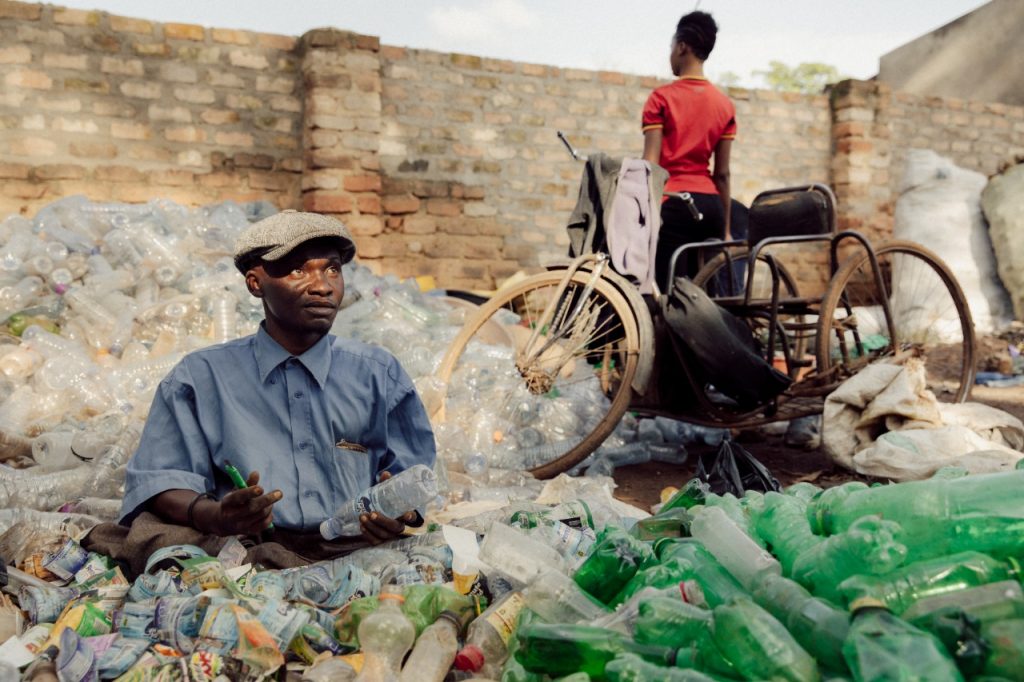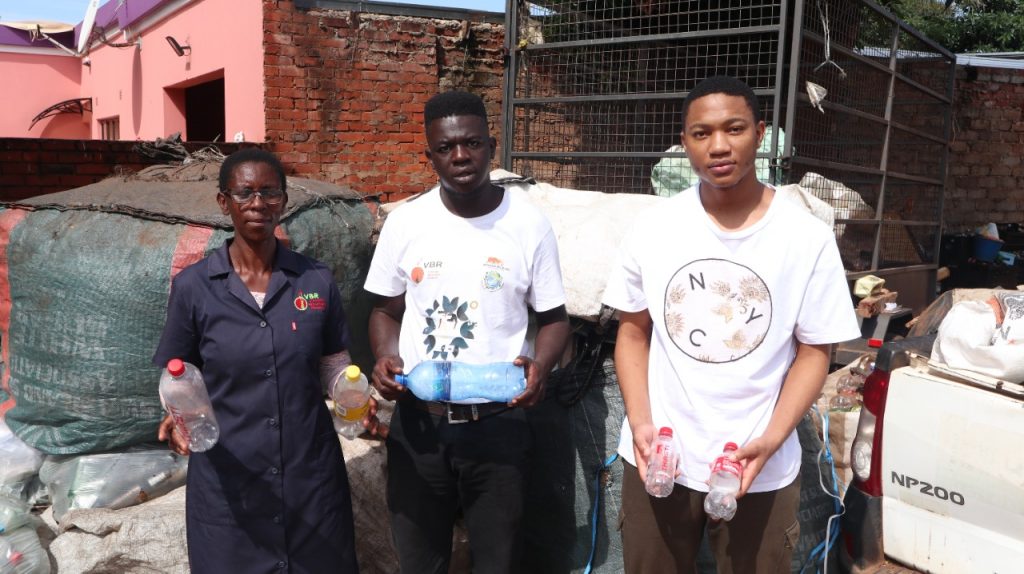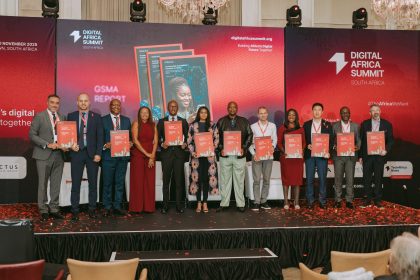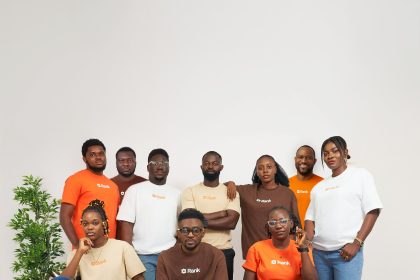Fifteen (15) teams of innovators from across Sub-Saharan Africa have been named finalists in the Afri-Plastics Challenge with solutions that will change both the behaviour of individuals and communities around plastic waste in Sub-Saharan Africa. Finalists from Botswana, Burkina Faso, Cameroon, Ethiopia, Ghana, Kenya, Nigeria, Senegal, South Africa, and Uganda will receive a £50,000 grant towards their solutions.
Projects that made it to the finals include “Change at the till”, a solution developed by Botswana’s Meeticks Africa. “Change at the Till” runs a 30-day challenge that aims to get users to gain knowledge on how their use of single-use plastics, especially when shopping, negatively affects the environment and contributes heavily to marine plastic waste, and to practice what they learn. The solution is a multi-day gamified experience conducted over an intelligent WhatsApp chatbot and backend app.

Another project is a Training-Empowerment-Promotion (TEP) model developed by Catharina Natang, a Cameroonian organisation. The TEP model aims to provide training on sustainable fashion and resource mobilisation to fashion designers and equip local designers to understand the subtle but massive presence of plastic-based fabrics in the fashion industry, and how this contributes to the global plastic waste problem. Students will learn about innovative non-plastic alternatives that are in existence and how to access them, and also how to recycle, properly dispose of and select non-plastic alternatives. The project will also organise annual sustainable fashion events to widen public awareness on sustainable fashion to reduce plastic wastes that end up in oceans.
Also in the running is Kenya’s Homeless of Kisumu’s M-taka solution which aims to train and empower women economically to become recycling agents who build communities of recyclers by leveraging technology and inducing behavioural change through social connections and incentives. Through an app, the masses will be targeted to increase recycling culture and link them with agents in their areas to collect the plastic and transport it to recyclers.
Honourable Harjit Sajjan, Minister of International Development, Government of Canada said: “Plastic pollution is threatening our ecosystems and food systems. I strongly believe that we must empower communities across the world to make sustainable choices. Choices that result in a better, more environmentally friendly future for all. I look forward to seeing the hard work and innovation of these amazing finalists, and can’t wait to contribute our expertise and efforts in supporting Africa in becoming a plastic waste-free continent.”
Tackling plastic pollution through three prize strands, the finalists in the third strand – Promoting Change – announced today are being supported to develop innovative engagement strategies such as gamification, incentives and storytelling to promote behaviour change and educate communities, as well as provide insights into the roles that women and girls play across the value chain. The marine plastic pollution issue is growing and we need to ensure that awareness translates into action and long-term behaviour change, at both individual and collective levels. To help the finalists achieve this, they will be further supported through a capacity-building portfolio of subject matter experts over the next several months to further develop their solution.
Constance Agyeman, Director of International Development, Challenge Works said: “The issue of marine plastic pollution has grown rapidly in recent years. It is crucial that awareness translates into action and long-term behaviour change, at individual and collective levels alike. The 15 finalists will be supported over the course of the next seven months to develop their communications campaigns and projects. The £50,000 grants will support teams to generate evidence of change around reducing littering, segregation of plastic waste, choosing reusable options, or refusing single-use plastic all together.”

Having made their way through the semi-final round, each finalist has already received grants of £5 000 to develop their ideas. Three winning projects will be awarded £250 000 each in March 2023.
While women and low-income populations are more likely to be negatively affected by plastic pollution, they are also a driving force of positive change, leadership and innovation in their communities. The Afri-Plastics Challenge aims to support innovative efforts to reduce plastic pollution in a way that empowers all, by promoting greater gender inclusiveness and social justice in national policies on plastic waste.
To find out more about the Afri-Plastics Challenge and the 15 finalists in the Promoting Change strand, please visit afri-plastics.challenges.org
The 15 finalists in the Afri-Plastics Challenge – Promoting Change Strand
- Meeticks Africa, Bostwana
Change at the Till runs a 30-day challenge that aims to get users to gain knowledge on how their use of single-use plastics, especially when shopping, negatively affects the environment and contributes heavily to marine-plastic waste, and to practice what they learn. The solution is a multi-day gamified experience conducted over an intelligent WhatsApp chatbot and backend app.
- Ensemble artistique et culturel WAKAT, Burkina Faso
The aim of the Environmental Ambassadors is to train 20 women, traders, waste sorters, civil society leaders and politicians on the harmful effects of plastic waste. These women will be trained through workshops in communication, awareness raising and advocacy methods, based on drama and storytelling to ensure behavioural change and finally trained in marketing alternatives to plastic bags.
- Catharina Natang, Cameroon
Catharina Natang’s TEP model aims to provide training to fashion designers on sustainable fashion and resource mobilisation and equip local designers to understand the subtle but massive presence of plastic-based fabrics in the fashion industry, and how this contributes to the global plastic waste problem. Students will learn about innovative non-plastic alternatives that are in existence and how to access them , and also how to recycle, properly dispose and select non-plastic alternatives. The project will also organise annual sustainable fashion events to widen public awareness on sustainable fashion to reduce plastic wastes that end up in oceans.
- Lem Ketema, Ethiopia
The Ye Zembil Melse campaign uses creative storytelling, digital campaigning with Ethiopian artists and public figures, and public engagements, and are developing a plastic-free guide to Addis Abeba, to communicate the detrimental impact of plastic waste in Ethiopia, revive traditional alternatives to plastic, and advocate for policy to ban single-use plastic bags.
- Let’s Do It Ghana, Ghana
The Community for Plastic Reduction and Recycling Project is a two-part project comprising community awareness through the use of activity-based education and recycling of plastic wastes. It is designed to spur community actions that bring changes in individual attitudes and purchasing habits leading to an increased awareness of plastic waste.
- Baus Taka Enterprise, Kenya
The #StopPlasticPollution Campaign leverages a mobile App to promote segregation of plastic waste from source while raising awareness of responsible waste management practices. Competitions on plastic segregation with cash incentives and points that can be redeemed for medical services in partnership health clinics will be hosted on the app.
- Homeless of Kisumu, Kenya
M-taka aims to train and empower women economically to become recycling agents who build communities of recyclers by leveraging technology and inducing behavioural change through social connections and incentives. Through an app, the masses will be targeted, to increase recycling culture and link them with agents in their areas to collect the plastic and transport it to recyclers.
- Ukwenza VR, Kenya
Ukwenza VR uses a VR storytelling format to showcase the journey a piece of plastic takes after disposal. Through this, Ukwenza VR hopes that by showing the different ways plastic waste can end up damaging the environment, they encourage people to take better care when disposing of plastic waste.
- Recycle Port Harcourt Limited, Nigeria
The Let’s recycle! campaign will feature both online and offline awareness through creative skits, challenges, clean games events, tree planting activities, etc. in a bid to educate the people about the dangers of plastic pollution while encouraging them to stop littering and start properly sorting/segregating their plastic waste.
- U-recycle Initiative Africa, Nigeria
The PLASTIC WIZE Campaign by U-recycle Initiative Africa plans to coach 50 women across 10 universities in Nigeria to implement creative strategies to influence behaviour change towards reducing plastic waste on their campuses.
- Association TERANGAGÉE, Senegal
SOLUTIONS ECOLO-CULTUR’ELLES has created a programme that starts with sensitisation and environmental education of children and inhabitants of a village through the involvement of local stakeholders (mainly women, “tatas” and young peer educators including girls). They use innovative, cultural tools such as educational song, choreography, short stories in animated videos, games, and artistic workshops.
- Moonshot Dynamics, South Africa
Paycycle uses a Point-of-Sale (POS) based digital reward system targeted at eliminating single-use plastic bags and promoting non-plastic reusable shopping bags (RUSBs) that are also recyclable and eco-friendly. Using a fleet of mobile applications customised to shoppers of various economic classes, Paycycle tracks consumer’s shopping bag usage over partnering shops and rewards consumers with loyalty points for purchasing and reusing RUSBs.
- Soapbox South Africa, South Africa
Captain Fanplastic’s use of storytelling as the core of the education about plastic enables us to contribute to the challenge directly. The programme is designed for scalability in that we are able to offer an opportunity to use girls and women as leaders, facilitators and trainers in much needed education in the communities.
- Vhembe Biosphere Reserve, South Africa
Turning your Trash to Treasure is based in the Vhembe Biosphere Reserve and aims to work with schools, tribal communities and women waste pickers to create awareness among selected schools by encouraging waste recycling at schools. All the collected waste material will be taken to a local company called Dziphathutshedzo Green Surface that is using plastics to make paving bricks, plastic tiles and other plastic products such as rulers and pencil cases.
- Eco Brixs, Uganda
The Plastic Manufactures and Recycling Union aims to create The Ugandan Recycling Association with membership from across the plastic recycling value chain. They want to create an interactive map where rich media and data will showcase everyone in the country engaged in recycling










